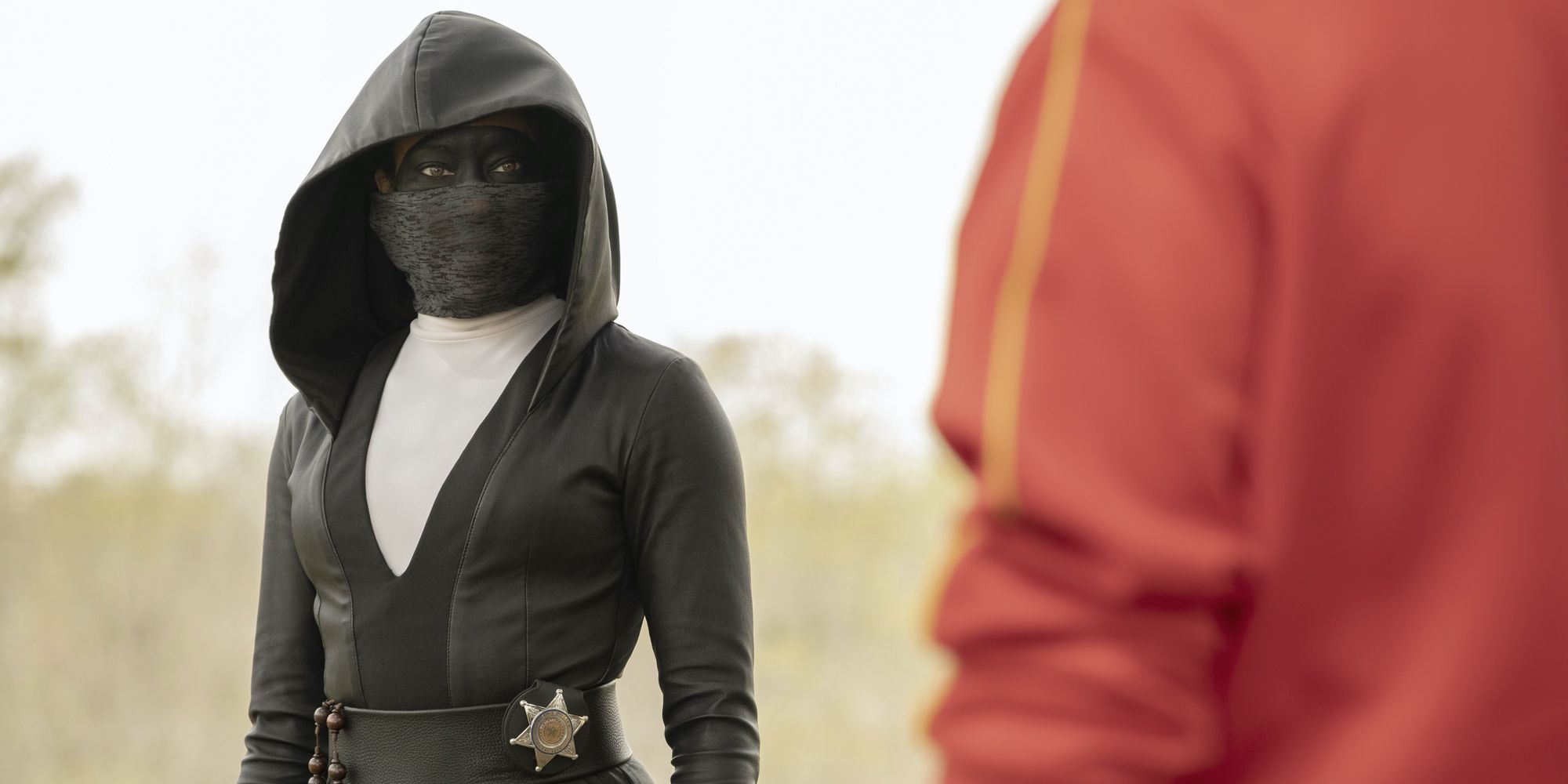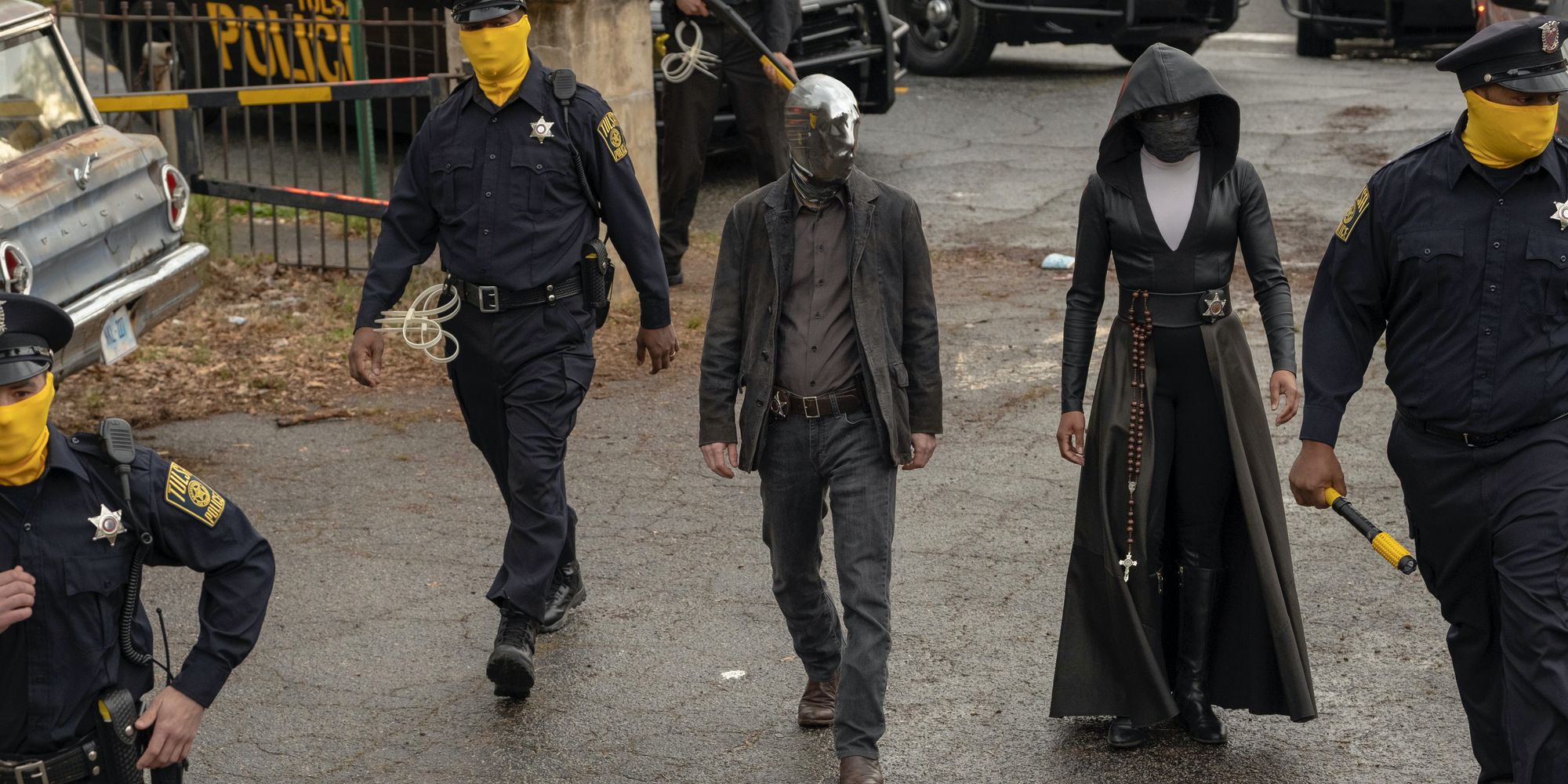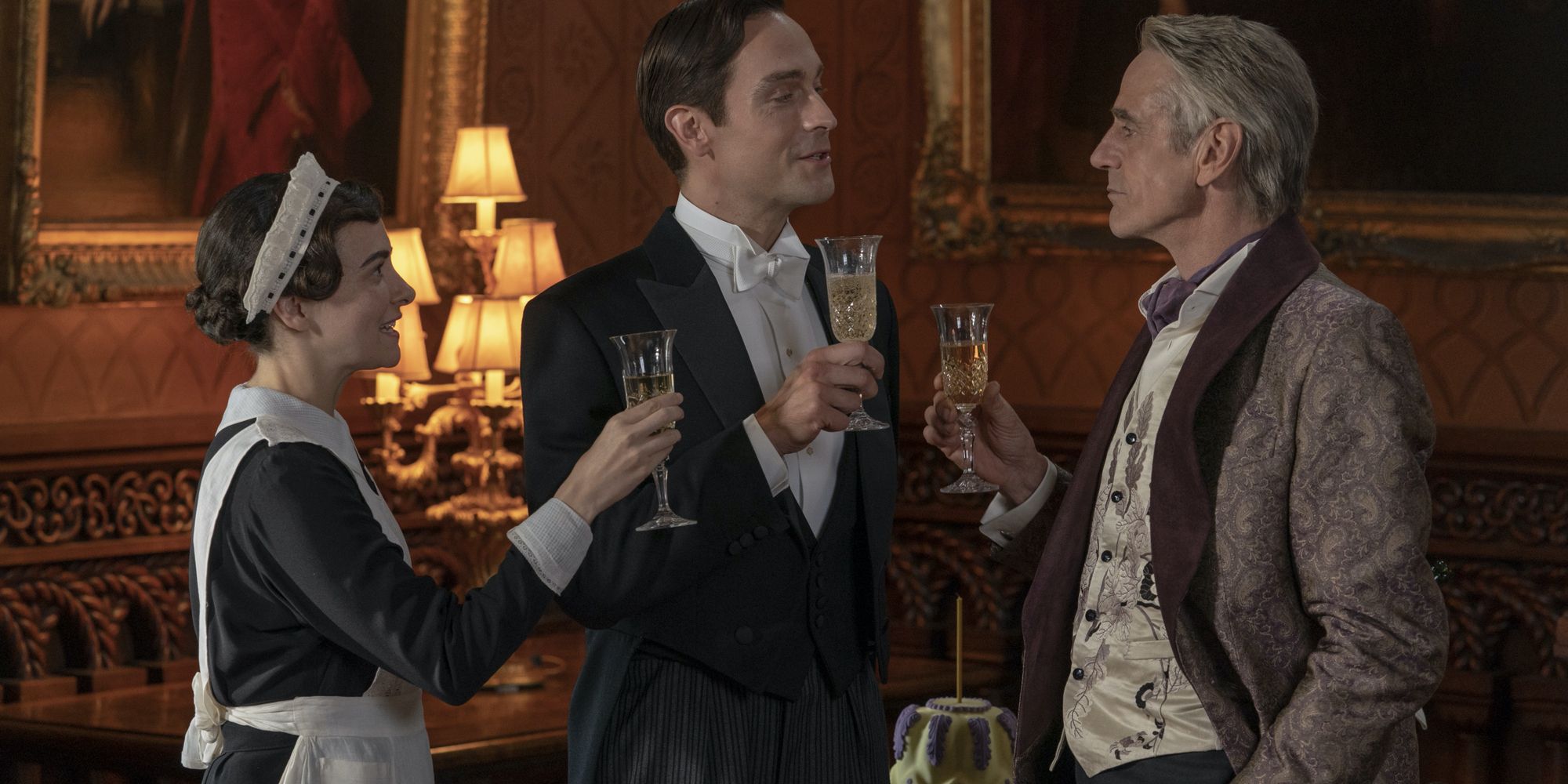When Damon Lindelof described his Watchmen TV series as a “remix” of the celebrated, subversive DC comic book from Alan Moore (though he wishes to have his name removed from any work for hire he’s done) and Dave Gibbons, it was enough to give anyone paying attention reason to pause and contemplate what he meant. After all, the series, set decades after the events of the comic book — extra-dimensional psychic squid smashing Manhattan and all — was supposed to be a continuation of that story, right? Well, to an extent that is certainly true, the series willingly and cleverly carries the narrative baggage of that unorthodox tale into the present day. But where Lindelof’s new series truly excels is in its understanding and manipulation of the original ideas and storytelling structure put to use in Moore and Gibbons’s classic work, and how it fashions from that work something radical and engaging and unabashedly political.
And while those attributes will no doubt work in the favor of Watchmen as the series moves along through its stunning first season, it’s Lindelof’s efforts to make use of so many of Moore and Gibbons’s more curious and unconventional asides that will ultimately set the series apart, particularly from Zack Snyder’s 2009 feature film adaptation, and other comic book-based programs on television. In the show’s favor is the amount of real estate Lindelof and his writers’ room have been given by HBO. Those hours are necessary not only to introduce (or re-introduce) audiences to the complex alternate history of this world, but also to give the story and its many characters room to breathe, to develop, and in a pair of striking episodes about half-way through the season, to upend the conventions of an already unconventional story.
The series begins not in New York city, and not in the ‘80s, at the height of the Cold War, but rather in Tulsa, Oklahoma, in 1921, with a terrifying depiction of the actual massacre in the Greenwood district — an affluent African American community — that was carried out by members of the Klan. It’s a harrowing introduction to the series, one that establishes a strong sense of place and the show’s desire to confront the toxic ideals of racism and white supremacy. It also effectively moves Watchmen out of the typical setting for most comic book plots. Tulsa is not New York, nor is it Gotham or Metropolis. It’s an unlikely locale for a series such as this, one where police have adopted vigilante personas as a way of keeping themselves and their families safe in the wake of an organized attack on law enforcement by a white supremacist group known as the Seventh Cavalry.
One of the predominant inquiries made by the series is the question: how can you tell the good guys from the bad if they’re both wearing masks? As it was in the comic book, that question isn’t at all easy to answer, even when the masks come off. That’s particularly true of Regina King’s Angela Abar, a Tulsa detective who goes by the vigilante moniker of Sister Night, as she finds herself embroiled in a murder mystery that hits far closer to home than she would have ever imagined. Joining her is fellow detective Tim Blake Nelson, who goes by the name Looking Glass. Nelson frequently dons a reflective mask with no eyeholes, which, on occasion, becomes an eerie facsimile of the inkblot mask worn by the unhinged vigilante Rorschach.
Looking Glass is another overt and shrewd remix from the original story, especially now that the Rorschach mask has been co-opted by a virulent hate group. That one of the original story’s most popular and defining characters has become a symbol of terror is another example of this series' ability to confidently weave a new narrative within the threads of Watchmen’s own storied history. That history, and America’s past — particularly its racist past that is still its present — looms large over the narrative Lindelof and his writers have constructed. Decades on, characters are still profoundly impacted by the events at the end of the book, while the continued existence of the godlike Dr. Manhattan on Mars — and his abandonment of humanity — has resulted in an unquestionable existential reckoning for the species he left behind. But, in a way that’s intrinsically human, the characters here have also moved on from those events, some by moving forward and too many by moving backward, reigniting the kinds of inhumane struggles made text in the original Watchmen.
It’s through that narrative structure that Watchmen cannily references or reintroduces some of the core characters from the original story. While Dr. Manhattan remains largely offscreen, Adrian Veidt (Jeremy Irons) has been given his own side story, one that is, again, a fascinating remix of what’s come before. Veidt’s story is not merely to evoke the past, but also to insert some humor into the proceedings, particularly as it concerns Irons’s increasingly irritable (and likely unstable) interactions with his two companions/servants, Marcos (Tom Mison) and Ms. Crookshanks (Christie Amery). Similarly, Jean Smart reckons with the past of Laurie Blake - formerly Silk Spectre - by revealing an array of complex emotions toward her past career as a vigilante, her current role as an FBI agent on the anti-vigilante task force, and her feelings toward Dr. Manhattan.
At its heart, Watchmen is, like its inspiration, a mystery, making it the ideal project for the guy who helped bring Lost and The Leftovers to life. But, much like Lindelof’s approach to one of the most celebrated works in comic book publishing, this is something both pleasingly familiar and radically different. The racially and politically-charged narrative of Watchmen is sure to create a stir, and with terrific performances from King, Irons, Nelson, and Jean Smart in particular, not to mention a propulsive score from Trent Reznor and Atticus Ross, this fascinating and searing remix may well have as signifiant an impact as the original.
Watchmen premieres Sunday, October 20 @9pm on HBO.



